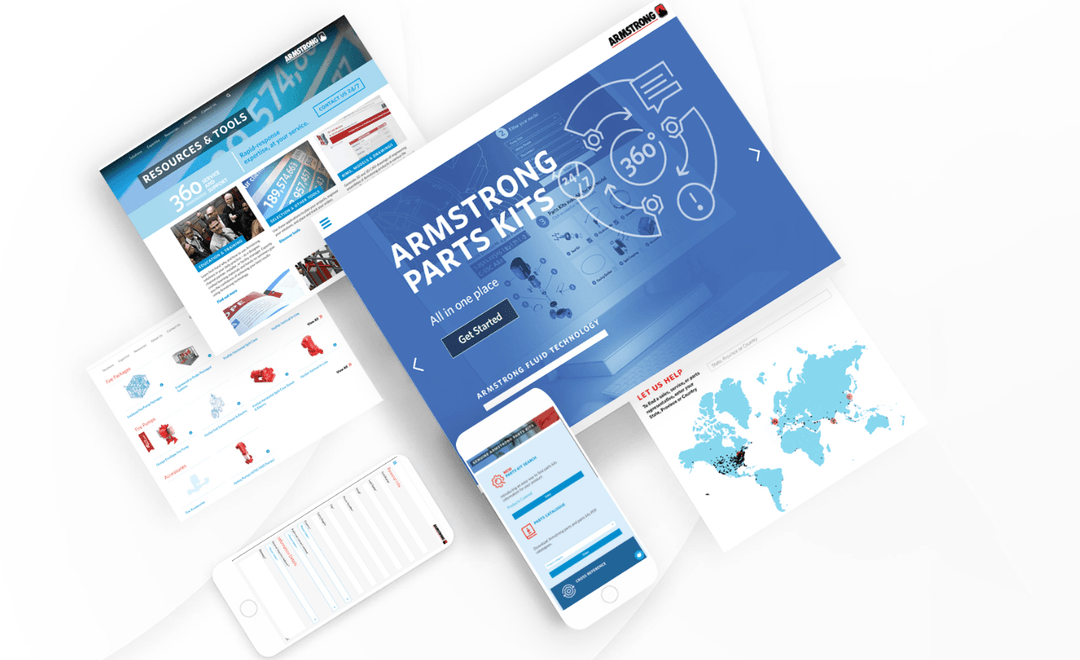Why Website Speed Matters and How to Improve It

In today's fast-paced world, speed is of the essence. This is especially true in the online space, where users expect websites to load quickly and seamlessly. But website speed isn't just a matter of convenience or user experience - it can also have a significant impact on your website's search engine rankings and overall success. In this blog post, we'll explore why website speed matters and provide tips for improving it.
Why Website Speed Matters
- User Experience: The most obvious reason why website speed matters is that it affects the user experience. Studies have shown that even a one-second delay in website loading time can lead to a significant drop in page views, conversions, and customer satisfaction. Slow-loading websites can frustrate users, leading them to abandon the site and seek out a faster alternative.
- Search Engine Rankings: In addition to user experience, website speed also plays a role in search engine rankings. Google has explicitly stated that website speed is a ranking factor, with faster websites ranking higher in search results. This means that if your website is slow, it may be more difficult for potential customers to find you online.
- Mobile-Friendliness: With the rise of mobile devices, website speed has become even more important. Mobile users are typically on-the-go and have less patience for slow-loading websites. In addition, Google has prioritized mobile-friendliness as a ranking factor, meaning that slow-loading mobile sites may suffer even more in search rankings.
How to Improve Website Speed
- Optimize Images: Large images can be a significant factor in slow website loading times. Make sure to compress images as much as possible without losing quality, and use responsive images that are appropriately sized for different devices.
- Minimize HTTP Requests: Every time a website loads, it makes a series of requests to the server for various files and resources. Minimizing these requests can significantly improve website speed. You can do this by combining multiple files into one, using CSS instead of images whenever possible, and reducing the number of third-party scripts and plugins.
- Use a Content Delivery Network (CDN): A CDN is a network of servers that are distributed across different geographic locations. By using a CDN, you can serve your website from the server that is closest to the user, reducing the distance and time it takes for the website to load.
- Enable Caching: Caching stores commonly accessed website elements in a user's browser, allowing them to load faster on subsequent visits. Enabling caching can significantly improve website speed, especially for repeat visitors.
- Optimize Code: Inefficient code can slow down website loading times. Make sure to minify and compress your code, eliminate unnecessary code, and optimize database queries.
Conclusion
Pragmatica Website Development Agency understands that website speed plays a vital role in enhancing user experience, search engine rankings, and overall website performance. To improve website speed and offer a seamless experience for your visitors, we recommend optimizing images, minimizing HTTP requests, utilizing a CDN, enabling caching, and optimizing code. By taking the time to evaluate your website's speed and implementing these strategies, you can avoid losing potential customers due to slow-loading pages. Contact us today to learn more about our website development services and how we can assist you in optimizing your website for speed and performance.
How to choose the right typography?
Lorem ipsum dolor sit amet, consectetur adipiscing elit lobortis arcu enim urna adipiscing praesent velit viverra sit semper lorem eu cursus vel hendrerit elementum morbi curabitur etiam nibh justo, lorem aliquet donec sed similem lorem ipsum dolor sit amet consectur.
- Neque sodales ut etiam sit amet nisl purus non tellus orci ac auctor el eros donec.
- Adipiscing elit ut aliquam purus sit amet viverra suspendisse potent nibh tortor id aliquet lectus.
- Mauris commodo quis imperdiet massa tincidunt nunc pulvinar
- Adipiscing elit ut aliquam purus sit amet viverra suspendisse potenti augue eget arcu dictu
Why choosing the right typography is so important
Vitae congue eu consequat ac felis placerat vestibulum lectus mauris ultrices cursus sit amet dictum sit amet justo donec enim diam porttitor lacus luctus accumsan tortor posuere praesent tristique magna sit amet purus gravida quis blandit turpis dolor sit amet consectur.

Why choosing the right typography is so important
At risus viverra adipiscing at in tellus integer feugiat nisl pretium fusce id velit ut tortor sagittis orci a scelerisque purus semper eget at lectus urna duis convallis. porta nibh venenatis cras sed felis eget neque laoreet suspendisse interdum consectetur libero id faucibus nisl donec pretium vulputate sapien nec sagittis aliquam nunc lobortis mattis aliquam faucibus purus in.
- Neque sodales ut etiam sit amet nisl purus non tellus orci ac auctor el eros donec.
- Adipiscing elit ut aliquam purus sit amet viverra suspendisse potent nibh tortor id aliquet lectus.
- Mauris commodo quis imperdiet massa tincidunt nunc pulvinar
- Adipiscing elit ut aliquam purus sit amet viverra suspendisse potenti augue eget arcu dictu
Where to find great free typographies online?
Nisi quis eleifend quam adipiscing vitae aliquet bibendum enim facilisis gravida neque. Velit euismod in pellentesque massa placerat volutpat lacus laoreet non curabitur gravida odio aenean sed adipiscing diam donec adipiscing tristique risus. amet est placerat in egestas erat imperdiet sed euismod nisi.
Varius duis at consectetur lorem donec massa sapien faucibus et. Vivamus arcu felis bibendum ut tristique et egestas quis. Accumsan sit amet nulla facilisi morbi. Orci a scelerisque purus semper eget. Mattis nunc sed blandit libero volutpat sed.
What is your currently favorite typography?
Eget lorem dolor sed viverra ipsum nunc aliquet bibendum felis donec et odio pellentesque diam volutpat commodo sed egestas aliquam sem fringilla ut morbi tincidunt augue interdum velit euismod eu tincidunt tortor aliquam nulla facilisi aenean sed adipiscing diam donec adipiscing ut lectus arcu bibendum at varius vel pharetra nibh venenatis cras sed felis eget dolor cosnectur drolo.





